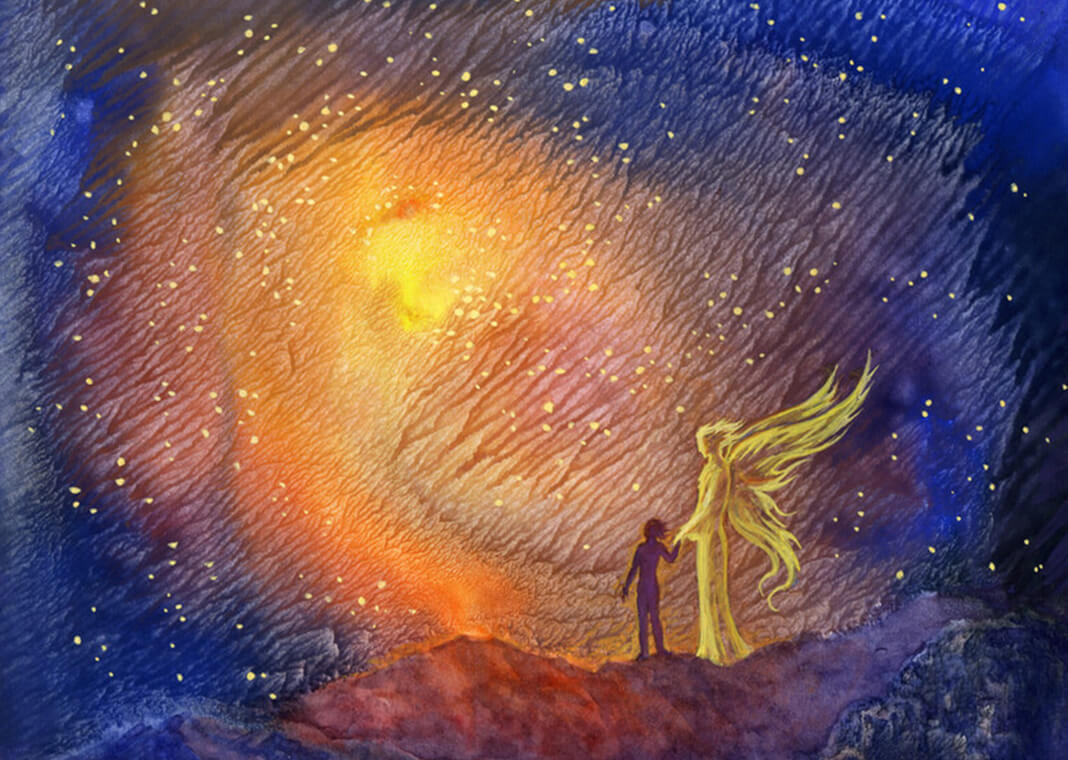
I’ve always been fascinated by the process of worldbuilding.
Science fiction and fantasy are by far my favorite genres. Occasionally, I dabble in writing speculative fiction of my own. Any successful speculative story—whether it’s one you are writing or one you are planning to spend several hours reading or watching—demands thorough, immersive worldbuilding.
The term means exactly what you’d guess; it’s the process of building a world. It’s the process of plotting historical events, new languages, socio-economic patterns, and geographic wonders. It’s the construction of a place that could be real, if our imagination is given enough raw material with which to work. It’s the making of new context and meaning in a landscape unique and wonderful and different—perhaps in only small, nuanced ways—from our own.
When we’re talking about fantastical stories, we might be talking about literal new worlds, such as Narnia, Middle Earth, Westeros, and Pandora. These stories might take place on a completely different planet infused with the power of magical gnomes. Or they might be set in a neighborhood not unlike the ones we live in, but things are a little…off. Different. Like a Black Mirror script.
Either way, the process of worldbuilding is the establishment of how things work and why, with rules, expectations, and relationships.
The very act of engaging with a work of science fiction, fantasy, horror, or some other speculative genre means the suspension of belief in what is—what we know and expect from our own lived experiences. And that means the reader or viewer must then be observant. Any detail or stray scrap of information becomes essential to understanding this new world and this new way of being and relating.
Any single object, conversation, or glimmer of new information is a piece of an enormous puzzle, a window into meaning and mystery and deeper understanding of how it all works. And the truly gifted storyteller is the one who doesn’t allow a single detail to go to waste. Everything points to the larger story, the enormity of the whole world bound up in this tiny, solitary point.
One might begin to guess at the faith connection here. Ah, yes. God in all things. Every detail matters.
Much has been written about the faith lives of C.S. Lewis and J.R.R. Tolkien—two of the best-known Christian writers of fantastical fiction. Commentators are quick to note the parallels between the Christ story and Aslan in Lewis’s Narnia; we see, too, the pervasiveness of temptation and the constant hope of redemption in Tolkien’s Middle Earth.
But I think the allure of speculative storytelling to my own spiritual life is the demanding process of worldbuilding, with its commitment on both the part of the storyteller and the reader.
The late Fr. Andrew Greeley wrote in his aptly named text, The Catholic Imagination, that it is our “religious sensibility which inclines Catholics to see the Holy lurking in creation;” we’re inclined to believe “the objects, events, and persons of daily life are revelations of grace.”
As the Jesuit poet Gerard Manley Hopkins insisted, “The world is charged with the grandeur of God.”
This religious imagination beckons us to engage in the process of worldbuilding each day.
This religious imagination—fueled by the “smells and bells” of Catholic tradition and guided by the Ignatian invitation to recognize God present in all things—beckons us to engage in the process of worldbuilding each day. We do so in our own nitty-gritty, ordinary lives just as much as in the speculative works we read and watch.
Why? Because God continues to create; God invites us into the work of creation. Mystery continues to unfold around us, drawing us in so as to send us out.
But too often, we don’t have eyes to see. We know the wardrobe in our closet is no portal to Narnia. We walk the streets of Baltimore, Dallas, Chicago, and Portland, not those of Westeros. And so, we see what we expect—and we expect what we’ve always seen.
But ours is a God of surprises beyond our expectations, delighting in creation that is yet to unfold. What if we spent our days in wonder, awe, and delight at the details we think we know so well? Rather than see them as we expect them to be, what if we saw them as those small puzzle pieces that reveal something greater, something spectacular about God and God’s dream for our world?
What if we truly admitted God to be present in all things—and responded? Would we build a new world? Would we be all the more enchanted by the one unfolding all around us?

Eric,
This is a fascinating post. I’ve read it a few times since it was posted. Your explanation of the importance of imagination which is so needed in Ignatian Spirituality which helps to bridge the ancient scriptures to the contemporary – the cosmic & ancient, to the ‘nitty-gritty’ of our everyday existence, is helpful to me – thanks!
What has helped me grasp your wonderfully imaginative writing has been to read the blog post backwards starting with the last paragraph. Being a pretty unimaginative (?) person , I find that I can more fully appreciate where the writer is ‘taking me’ with their story, so that I can fully grasp their gift of story telling. Thanks!
i
Thanks Eric for this awesome piece. Grounded on justice, worldbuilding is a beautiful project. All have ample opportunities to be part of it. In his own way, the legendary Inigo has set the ball rolling. What a mind he was blessed with! Saint Ignatius of Loyola – Pray for us.